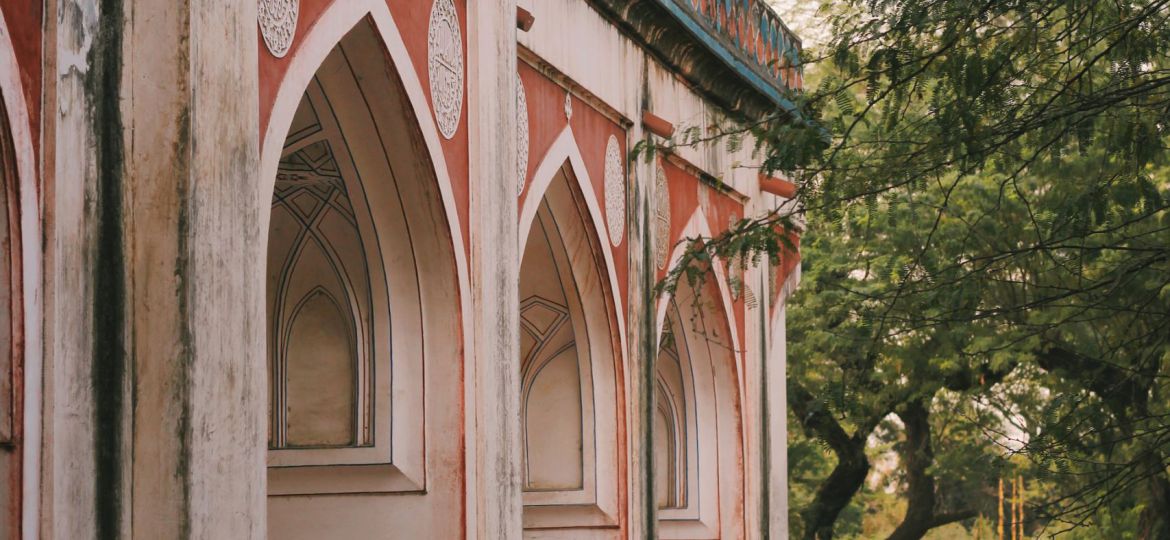
We hold hands up the slender staircase
laden with rubble, to reach a room where sunlight
enters wounds in old windows. Licks
the damp walls yellow. The Gomti drifts
along the barren backyard – its water soundless,
holding a mirror to the sky. Laughter foams
at our mouths, becomes echo.
I see a carnival across the river –
a patch of land on the bank, concealed
by sprawling trees and undergrowth. Men
brought down on their knees by other men.
Queers quietly leading lovers into the arms of
Neem, to speak in the language of bodies.
We are two boys in our early twenties
who can read touch like that, who have broken into
a 200-year-old mansion, without permission,
to see from above where people like them go
after 377 has been read down only for those
who can stay behind closed doors – in the custody
of cheap hotels, or houses that welcome nights
with the sound of latches closing.
Whispers have come to greet us
on the pavilion – the ghosts of revolutionaries
who hid in the basement of this manzil in 1857.
Let out when someone excavated the halls
last month, they do not know the nation
imagines itself free now. The metro snakes past us
as they speak. A bulldozer has reached
the other side, its talons ready to dig –
modernise this part of Lucknow with flagpoles,
pavements, and cameras. The nation has a thousand eyes
sprouting everywhere in its reach. These ghosts,
like us, are looking for new places to hide.
The current is still slow in the river. Time runs
slower. Speckles of the afternoon retreat
from his face, as I turn to the ghosts,
ask why there are no declarations of love
on these pillars. We are told to come closer
to each other, look carefully when the light dies out.
Cover Image: Photo by Ravi Sharma on Unsplash